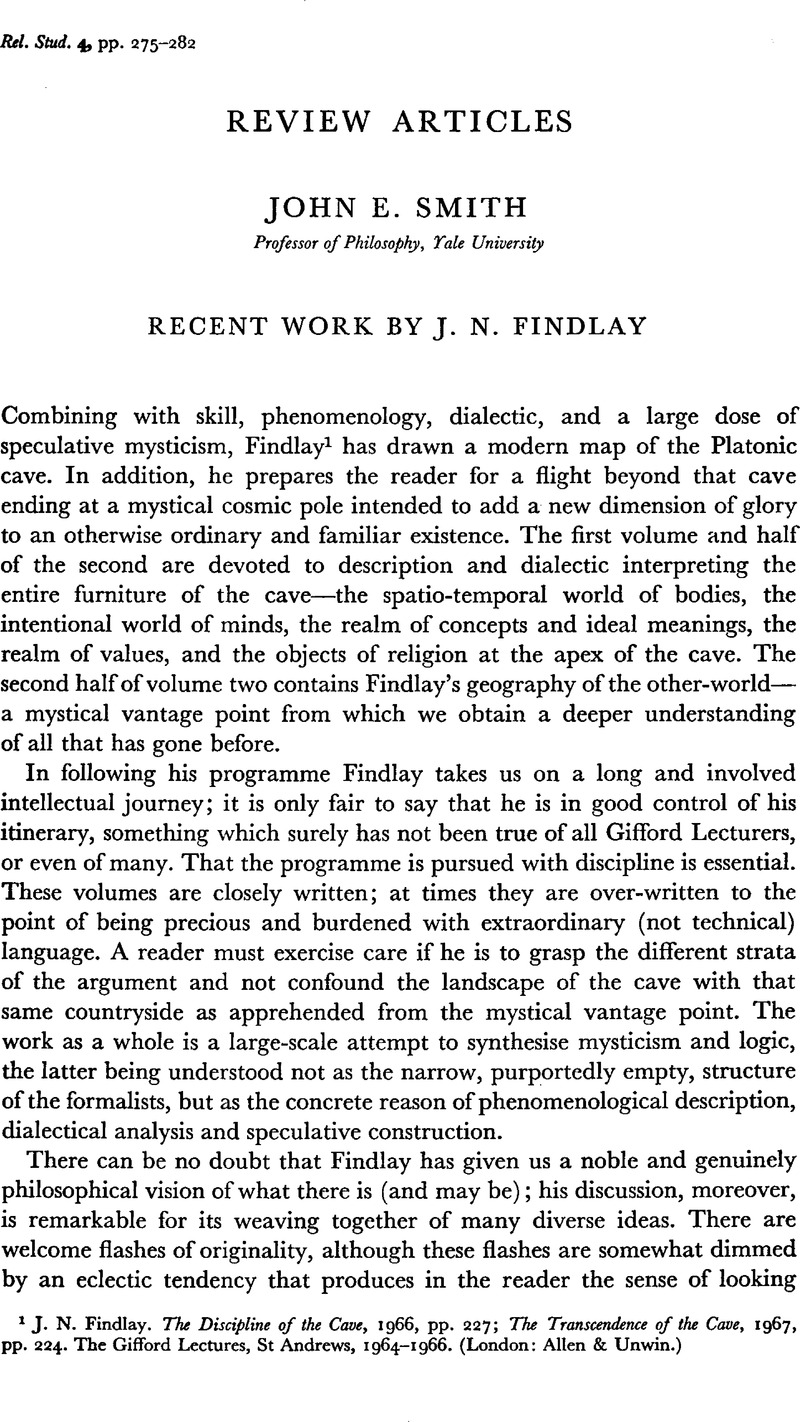No CrossRef data available.
Article contents
Recent Work by J. N. Findlay
Published online by Cambridge University Press: 24 October 2008
Abstract

- Type
- Review Articles
- Information
- Copyright
- Copyright © Cambridge University Press 1969
References
page 279 note 1 Bolder than most official philosophers of science, Findlay asks the good question as to why the entire universe must be interpreted in such a way as to keep constant one contingent measurement—the velocity of light—when the infinite variety of chance encounters between things might have been explained by the invariant character of their natures; see I, 140; cf. 144.
page 281 note 1 It is curious indeed that Tillich's thought is described in this way. Tillich would not allow that ‘ultimate concern’ is a merely ‘human attitude’ any more than Findlay would accept the reduction of his eidetic phenomenology to the ‘merely psychological.’


